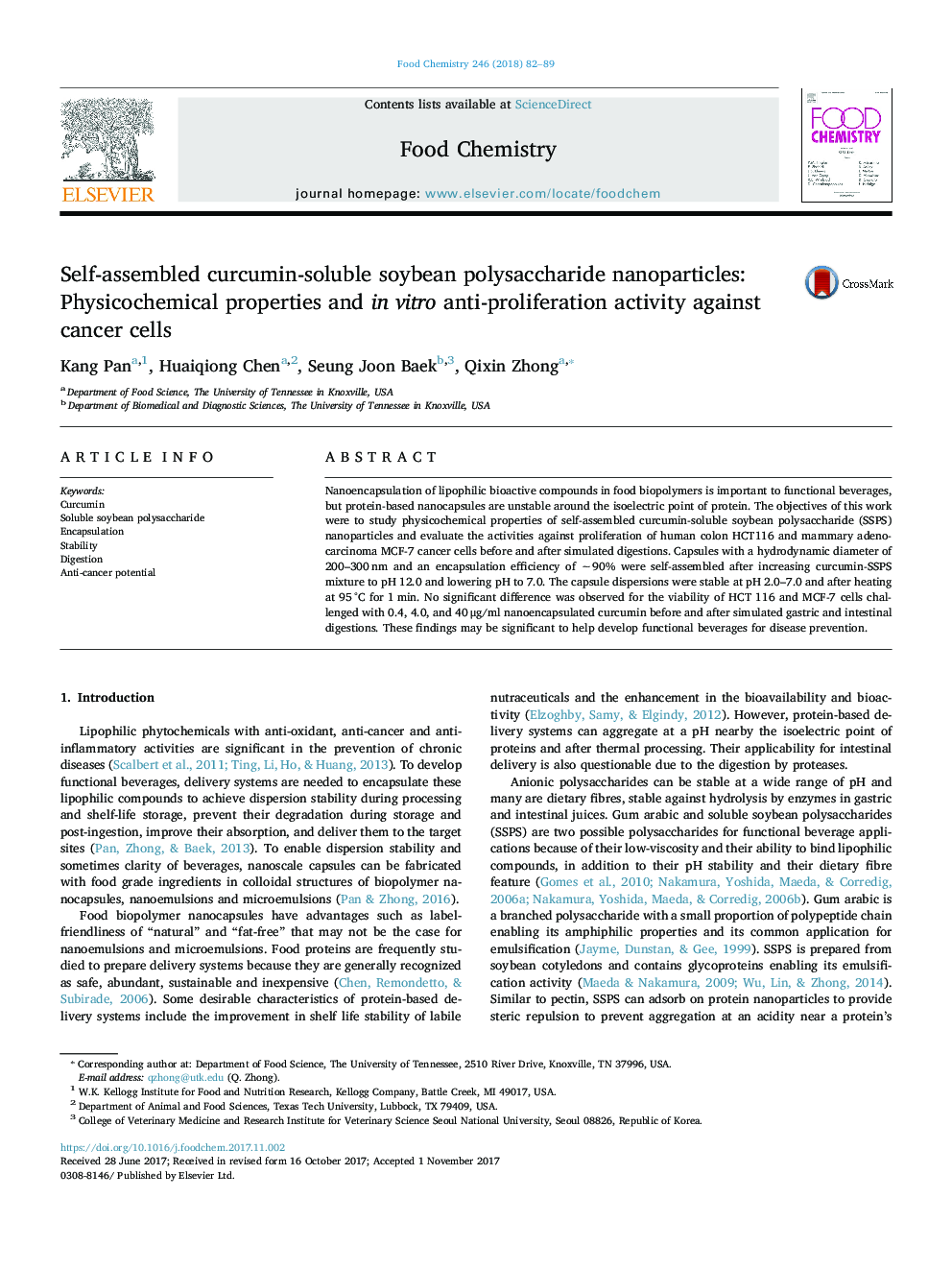| Article ID | Journal | Published Year | Pages | File Type |
|---|---|---|---|---|
| 7586121 | Food Chemistry | 2018 | 8 Pages |
Abstract
Nanoencapsulation of lipophilic bioactive compounds in food biopolymers is important to functional beverages, but protein-based nanocapsules are unstable around the isoelectric point of protein. The objectives of this work were to study physicochemical properties of self-assembled curcumin-soluble soybean polysaccharide (SSPS) nanoparticles and evaluate the activities against proliferation of human colon HCT116 and mammary adenocarcinoma MCF-7 cancer cells before and after simulated digestions. Capsules with a hydrodynamic diameter of 200-300â¯nm and an encapsulation efficiency of â¼90% were self-assembled after increasing curcumin-SSPS mixture to pH 12.0 and lowering pH to 7.0. The capsule dispersions were stable at pH 2.0-7.0 and after heating at 95â¯Â°C for 1â¯min. No significant difference was observed for the viability of HCT 116 and MCF-7 cells challenged with 0.4, 4.0, and 40â¯Î¼g/ml nanoencapsulated curcumin before and after simulated gastric and intestinal digestions. These findings may be significant to help develop functional beverages for disease prevention.
Related Topics
Physical Sciences and Engineering
Chemistry
Analytical Chemistry
Authors
Kang Pan, Huaiqiong Chen, Seung Joon Baek, Qixin Zhong,
